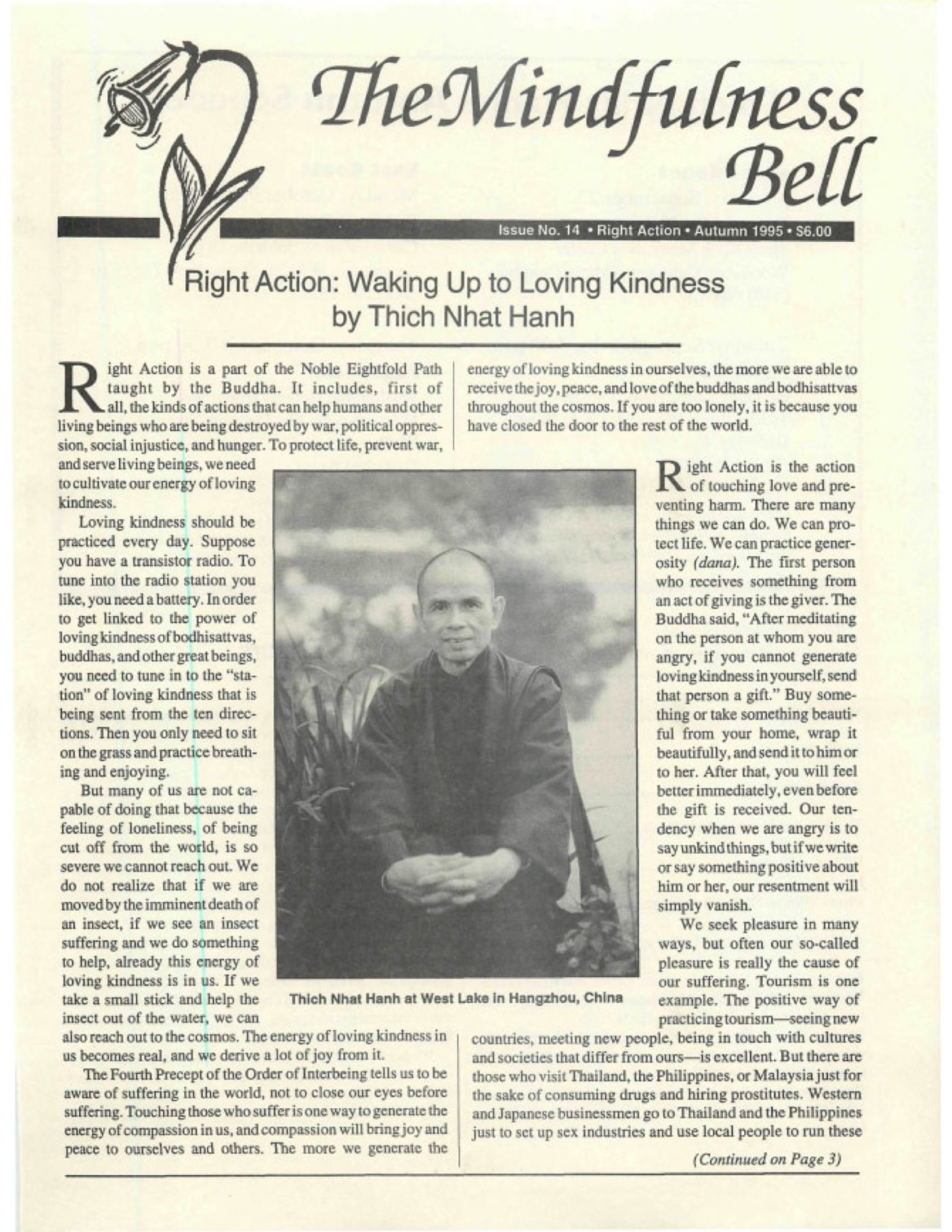By Dai-En Bennage
When we resolve to live by the Noble Eightfold Path, teaching meditation in prisons can bring special challenges. Seven federal correctional institutions stand amidst the gentle, rolling mountains and corn fields of central Pennsylvania within a radius of half an hour’s drive from our meditation center. When I visit men in five of these prisons, I ask myself, “What would the Dharma have me do right here and now? What is the Right Action, both for those incarcerated and for the citizens on the outside?”
By Dai-En Bennage
When we resolve to live by the Noble Eightfold Path, teaching meditation in prisons can bring special challenges. Seven federal correctional institutions stand amidst the gentle, rolling mountains and corn fields of central Pennsylvania within a radius of half an hour's drive from our meditation center. When I visit men in five of these prisons, I ask myself, "What would the Dharma have me do right here and now? What is the Right Action, both for those incarcerated and for the citizens on the outside?" Some of the inmates are ethnic Buddhists from Asia. Others are new Buddhists. Some have no affiliation but yearn for peace of mind within the unending din, the constant possibility of violence and sudden death born of overcrowded conditions.
"Welcome to our asteroid!" is a greeting I often receive at the maximum security penitentiary, where men can be held from 30 years to life. I try to share Thay's teachings that even a smile can help others, but I am met with a chorus of "No way! You can't afford a smile around a place like this. It can be mistaken for a sneer or a leer, and that would be the last thing you would be alive to do." One day we discussed the precepts. "Prevent others from killing? You want me to put my neck out in a fight? This isn't the outside world!"
In low security prison, men are often in trauma from being incarcerated for the first time, dealing with being away from their loved ones. Some are suddenly transferred to other institutions. How to find constancy? On one visit, there was singing and preaching pouring out of the other chapel rooms along the corridor. A man sprung up from his zafu, his face livid, "I'm going to kill those guys if they don't shut up!" The other meditators helped him calm down. We said quietly, remaining seated, that we need to look deeply at the noise inside of us. He sat down again. I remember reading the sentence, "Take no action and the world is transformed." To take no action at appropriate times is Right Action.
Whether they are aware of it or not, many of the men are being changed by mindfulness meditation. One chaplain said to me, "I like these Buddhist guys. They are respectful and they don't give me any flack." When I ask new men in the group why they have come, they might say, "Joe, here, he's quiet in a different way. I want to be like that." And so, even though inmates feel they cannot risk a smile, unknown to them, it is their whole body that smiles.
Patricia Dai-En Bennage is a Soto Zen priest, who lives and teaches in Muncy, Pennsylvania.

